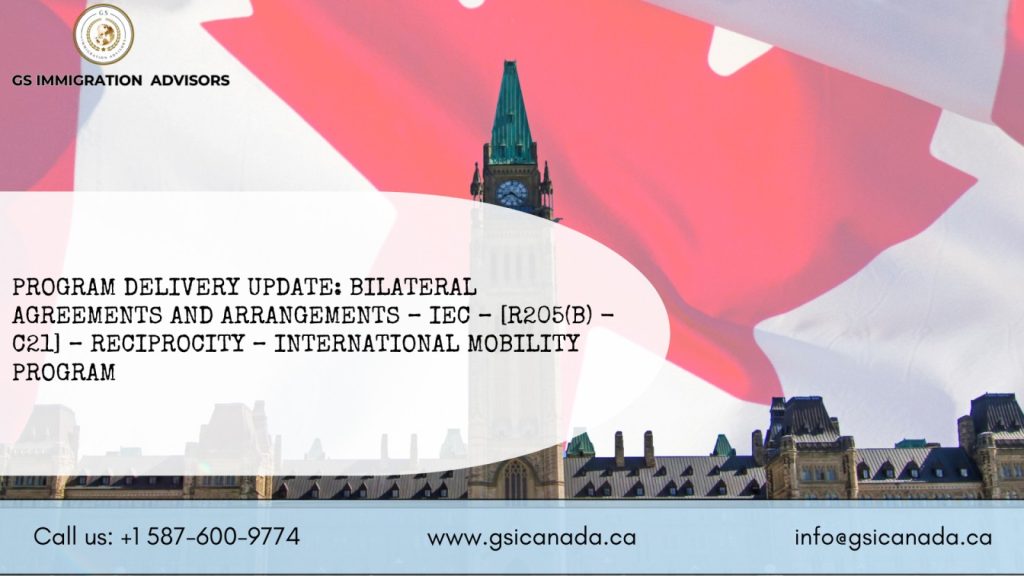
The International Mobility Program (IMP) continues to evolve as part of Canada’s ongoing efforts to foster international cooperation and reciprocal opportunities for work experience. A recent update highlights the role of bilateral agreements and arrangements under the International Experience Canada (IEC) program, specifically addressing work permit issuance under R205(b) – C21, a significant component of the program.
This blog explores the key updates, their implications, and what they mean for applicants and employers in Canada.
Understanding R205(b) – C21: Reciprocity in Work Permits
The International Mobility Program allows Canada to issue work permits without requiring a Labour Market Impact Assessment (LMIA) in certain cases. One such category under R205(b) – C21 promotes reciprocity, allowing foreign nationals to gain work experience in Canada if their home country offers similar opportunities for Canadians.
What Are Bilateral Agreements and Arrangements?
- Work Holidays: Short-term work and travel opportunities.
- Young Professional Programs: Skill-based jobs aligned with applicants’ career goals.
- International Co-op Placements: Internships tied to an academic program.
Key Updates in Program Delivery
- Enhanced Reciprocity Mechanisms:
- Streamlined Application Processing:
- Expanded Participation Opportunities:
- Closer Monitoring of Agreements:
Benefits for Applicants
Implications for Canadian Employers
Conclusion
The updates to bilateral agreements and arrangements under the International Experience Canada (IEC) program reaffirm Canada’s commitment to fostering international mobility and cultural exchange. By enhancing the R205(b) – C21 category, the International Mobility Program strengthens global partnerships while benefiting both foreign nationals and Canadians.
For applicants and employers, understanding these updates is crucial for leveraging the opportunities offered by the program. If you’re considering applying under the IEC or hiring through the International Mobility Program, stay informed about these changes to maximize your success.
Need Help?
For more details on eligibility, application requirements, or hiring processes, visit the official Government of Canada website or consult an immigration expert.